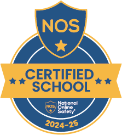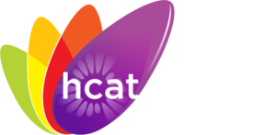Headteacher Mr D Matthews
Chair of Governors Ben Fisher
Address
The Marvell College Barham Road Hull HU9 4EEUseful Links




“Staff are proud to work at The Marvell College. Leaders take care to ensure that staff workload and well-being is a high priority.” Ofsted July 2024.
“Pupils say that they are happy and safe. They have a trusted adult to go to if they feel worried or upset. Pupils behave well in classrooms and on corridors.” Ofsted July 2024.
“Teachers have strong subject knowledge. They have created positive learning environments in the classroom.” Ofsted July 2024.
Staff well-being, workload and support
At The Marvell College we have the workload and well-being of our staff at the forefront of our decision making. We treat colleagues as professionals and our expectation is that they are doing an excellent job. Whilst some quality assurance is required, we aim to make this developmental and supportive. Some of the steps we take to achieve this are listed below:
Full time teachers are timetabled for a maximum of 21 hours per week. Part time teachers are timetabled on a pro-rata basis.
We expect marking and feedback to happen regularly and to be effective, but we allow subject leaders to determine the approach that will work best in their curriculum area.
All staff are entitled to take a paid well-being day at a mutually convenient time. Many staff split this over two half days. This allows staff to attend sports days, prizegiving’s, have a spa day, visit relatives, or whatever they choose to do with the time.
The school is also not open to pupils on the Friday and Monday either side of the October half term. Whilst staff are welcome to come into school to work on these days if they wish to, we are happy to leave this decision with them, and many take the opportunity to start their holiday early, or extend it, with our thanks and best wishes.
In addition to this, we have a staff preparation day the first day back after the Christmas break, and we disaggregate 3 of our INSET days so that we finish 3 days earlier in the summer term.
The school employs a full-time well-being officer to support staff and pupils alike.
The school assumes that all staff are doing an excellent job. With this in mind, there are no formal lesson observations or work scrutinies.
These activities are completed alongside, rather than to, staff. The purpose of them is to ensure that strengths are identified and celebrated, with areas for discussion highlighted and talked through. Support, if required, is then put in place.
All school meetings and Professional Learning takes place after school on Thursday. If any event takes place on a different night that requires all staff to attend, the Thursday session is cancelled.
Professional Learning takes the form of centrally planned activities, departmentally focussed sessions and year team meetings on rotation.
There is time set aside in each session for colleagues to mark pupils work and to update seating plans if required.
We collect data whole school three times a year for each year group. Attitude to learning is automatically generated using the “Positive Behaviour for Learning” scores input into registers. This leaves staff to only input either a working at, or predicted, grade.
Departmental data collected after assessments focusses on the key foundational knowledge that pupils must secure and is analysed for staff, generating areas for improvement on a whole class and individual pupil basis. Staff can then use this analysis to put in place adaptive teaching and learning to best meet the needs of their classes.
We are proud that 50% of the staff currently employed in our school have been promoted during their time with us or came to us for promotion. Staff turnover in our school is low.
ITT and ECT colleagues in our school are exceptionally well supported by our dedicated Teaching and Learning Team and an additional 25+ colleagues have trained with us, been appointed as an ECT, and remain in our employment.
Collaborative culture
All departments have clearly defined sequences of learning accompanied by high-quality resources for you to use. All we ask is that these resources are adapted to suit the needs of the pupils in your classes. Subject leaders collate curriculum adaptations over time and, where common themes arise, changes are made to the curricula models in discussion with the whole team. Our holistic approach to pastoral care means all staff have a shared responsibility in the area. We actively tackle issues when they arise without leaving them for others to address. “The behaviour we ignore, is the behaviour we deserve”.